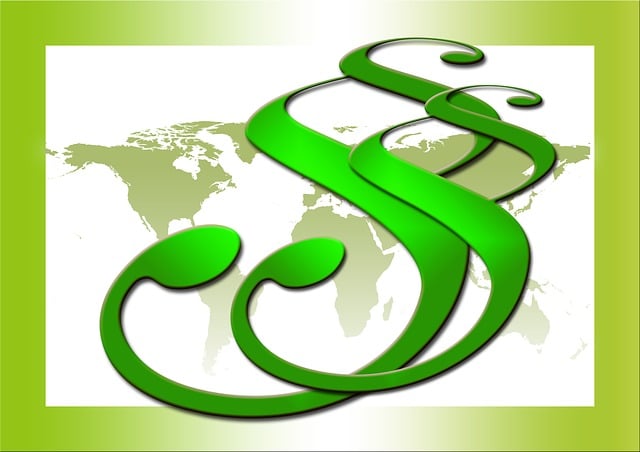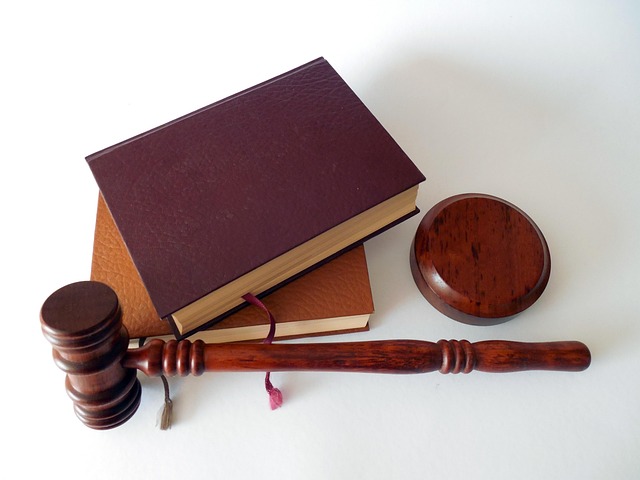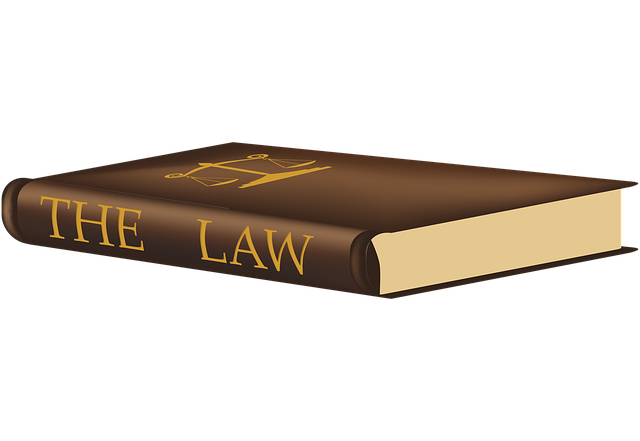Category: Involved in civil litigation related to securities violations
Involved in Civil Litigation Related to Securities Violations: A Comprehensive Overview
Introduction
In the intricate world of finance, ensuring fair and transparent market practices is paramount. ‘Involved in civil litigation related to securities violations’ refers to the legal process where individuals, entities, or corporations are sued for allegedly breaking laws governing the issuance, trading, or disclosure of securities. This complex area of law has far-reaching implications, impacting not just the accused but also investors, regulators, and the overall health of financial markets. This article aims to dissect this topic, offering a comprehensive understanding of its various facets, from historical roots to future prospects. By exploring case studies and global trends, we will uncover the significance of civil litigation in maintaining integrity within the securities ecosystem.
Understanding Civil Litigation Related to Securities Violations
Definition: Civil litigation in the context of securities violations is a legal dispute between private parties or individuals and a corporation or entity over alleged misconduct related to securities. This can include fraud, misrepresentation, breach of fiduciary duty, or non-compliance with disclosure requirements. Unlike criminal proceedings, civil litigation focuses on compensatory damages and restitution rather than punishment.
Core Components:
- Securities Law Violations: These encompass a wide range of offenses, from insider trading and price manipulation to false or misleading financial statements.
- Legal Action: Plaintiffs (the parties alleging the violation) file a complaint, outlining the alleged misconduct and seeking legal remedies.
- Court Proceedings: The case proceeds through various stages: pleading, discovery, trial, and appeal. During this time, both parties present evidence and arguments.
- Remedies: Potential outcomes include monetary damages, injunctions (court orders to stop illegal activities), or the appointment of receivers to manage the defendant’s assets.
Historical Context: The concept of civil litigation for securities violations has evolved over centuries. The U.S. Securities Act of 1933 and the subsequent development of securities exchanges in the early 20th century laid the foundation for modern-day regulations. The famous case of Central Bank v. First National Bank (1976) established the doctrine of primary jurisdiction, where federal courts defer to regulatory bodies in matters within their expertise, such as securities violations.
Significance: This form of litigation serves as a critical mechanism for holding companies and individuals accountable, protecting investors, and maintaining market integrity. It provides a platform for affected parties to seek justice and recover losses incurred due to fraudulent or illegal activities.
Global Impact and Trends
Civil litigation related to securities violations is a global phenomenon, with every major financial center having its own version of regulatory frameworks and legal precedents.
- North America: The United States has one of the most robust systems, with the Securities and Exchange Commission (SEC) playing a pivotal role in enforcement. Canada’s securities regulations are largely influenced by U.S. practices through its membership in various international bodies.
- Europe: The European Union’s (EU) Capital Markets Directive sets out minimum standards for member states to protect investors. The EU’s Financial Reporting Council oversees corporate governance and disclosure practices.
- Asia Pacific: In Japan, the Financial Services Agency handles securities enforcement, while China’s Securities Regulatory Commission (CSRC) regulates the market. Australia’s Australian Securities and Investments Commission (ASIC) is responsible for market integrity.
- Emerging Markets: Countries like Brazil, India, and South Africa are building their own robust legal frameworks to combat securities fraud.
Trends Shaping the Landscape:
- Cross-Border Enforcement: With globalization, cross-border litigation has become more common, particularly in cases involving multinational corporations.
- Tech-Driven Fraud: The rise of high-frequency trading and complex algorithms has led to new forms of market manipulation, requiring updated legal strategies.
- Increased Investor Awareness: Educated investors are actively pursuing legal action for perceived misdeeds, adding momentum to civil litigation cases.
- Regulatory Harmonization: International organizations like the OECD promote regulatory cooperation to combat global financial crimes, including securities violations.
Economic Considerations
The economic implications of civil litigation related to securities violations are multifaceted.
- Market Dynamics: Large-scale lawsuits or settlements can impact market stability and investor confidence. For instance, the Enron scandal in 2001 led to a significant decline in stock markets worldwide.
- Investment Patterns: Litigious environments may deter investment, especially from foreign institutions. However, successful litigation can also attract investors seeking profitable opportunities within reformed markets.
- Economic Systems and Regulators: Central banks and financial regulators play a crucial role in stabilizing markets after significant litigation events. They implement policies to restore investor faith and ensure economic growth.
Technological Advancements
Technology has both enabled and complicated securities fraud, leading to innovative legal responses:
- Data Analytics: Advanced analytics helps regulators identify patterns of suspicious activities, enabling early intervention.
- Blockchain: This technology’s immutability can enhance transparency and secure digital transactions, potentially reducing fraud.
- Artificial Intelligence (AI): AI algorithms can detect anomalies in market data, aid in due diligence, and improve regulatory oversight.
- Cybersecurity: As cyberattacks targeting financial institutions increase, robust cybersecurity measures become essential to protect against fraud.
Case Studies: Learning from History
Enron Corporation (2001)
Considered one of the most significant corporate scandals in U.S. history, Enron’s collapse was due to accounting fraud and corruption. Civil litigation followed, with thousands of investors and creditors suing the company and its former executives. The case resulted in substantial settlements and led to reforms in corporate governance and financial disclosure.
LIBOR Scandal (2012)
A global manipulation of the London Interbank Offered Rate (LIBOR) interest rate by several major banks sparked civil litigation worldwide. Investors and institutions filed lawsuits, leading to significant settlements and changes in bank practices to ensure more transparent pricing.
Legal Remedies and Strategies
Civil litigation offers various remedies:
- Monetary Damages: Affected parties can recover losses incurred due to the violation.
- Injunctions: Courts may order defendants to stop illegal activities, preventing further harm.
- Receivership: In severe cases, a court-appointed receiver can manage the defendant’s assets to prevent their misuse.
- Deterrence: The threat of litigation can act as a deterrent for potential wrongdoers, promoting ethical business practices.
Future Prospects and Challenges
Emerging Technologies and Fraud
As technology evolves, so do fraud schemes. Regulators must stay abreast of emerging technologies like quantum computing and biotechnology to anticipate new forms of market manipulation.
International Cooperation
Cross-border litigation presents challenges in terms of jurisdiction and conflicting laws. Increased international cooperation and harmonization of regulations will be crucial to effectively combat global securities fraud.
Digital Literacy and Investor Education
With the rise of online trading platforms, educating investors about digital security and risk management is essential. Higher investor literacy can contribute to more robust market integrity.
Frequently Asked Questions (FAQ)
Q: Can individuals be held liable for securities violations?
A: Yes, individuals responsible for misconduct, including executives and board members, can be held personally liable.
Q: What is the time frame for filing a civil lawsuit for securities fraud?
A: The statute of limitations varies by jurisdiction but typically ranges from one to three years from the date of discovery or alleged violation.
Q: How do I know if I have a valid claim?
A: Consult with an experienced securities litigation attorney who can assess your case, advise on potential remedies, and guide you through the legal process.
Conclusion
‘Involved in civil litigation related to securities violations’ is a complex area of law with significant economic and social implications. By examining historical cases, understanding global trends, and embracing technological advancements, regulators, lawyers, and investors can navigate this intricate landscape more effectively. As markets evolve, so must the legal frameworks that protect them, ensuring fairness and integrity for all participants.
Stop Fraud, Protect Your Assets: Expert Guidance for Civil Litigation Defense

Are you entangled in civil litigation stemming from securities violations, specifically financial fr…….
Save on Securities Violation Defense: Denver’s Top Civil Litigators Offer Free Consultations & Winning Strategies
Protect Your Assets: Expertise in Healthcare Fraud Defense & Civil Securities Litigating – Free Consultation.

Are you facing complex civil litigation due to securities violations, specifically within the health…….
Expert Criminal Defense: Save Time & Money in Securities Litigation

Are you facing the complex and costly challenge of civil litigation stemming from securities violati…….
Master Securities Defense: Save Time & Money on Civil Litigation Costs

Are you entangled in civil litigation due to securities violations? Master Securities Defense is you…….
Save Big with 5280’s Top Securities Lawyer: Expert in Civil Litigation
Expert Securities Defense: Save on Civil Litigation Costs

Are you grappling with civil litigation stemming from securities violations? Our expert defense serv…….
Save Money on Securities Claims: Denver’s Top Litigators Offer Free Consults

Tired of watching your hard-earned resources disappear due to costly legal battles over securities c…….



